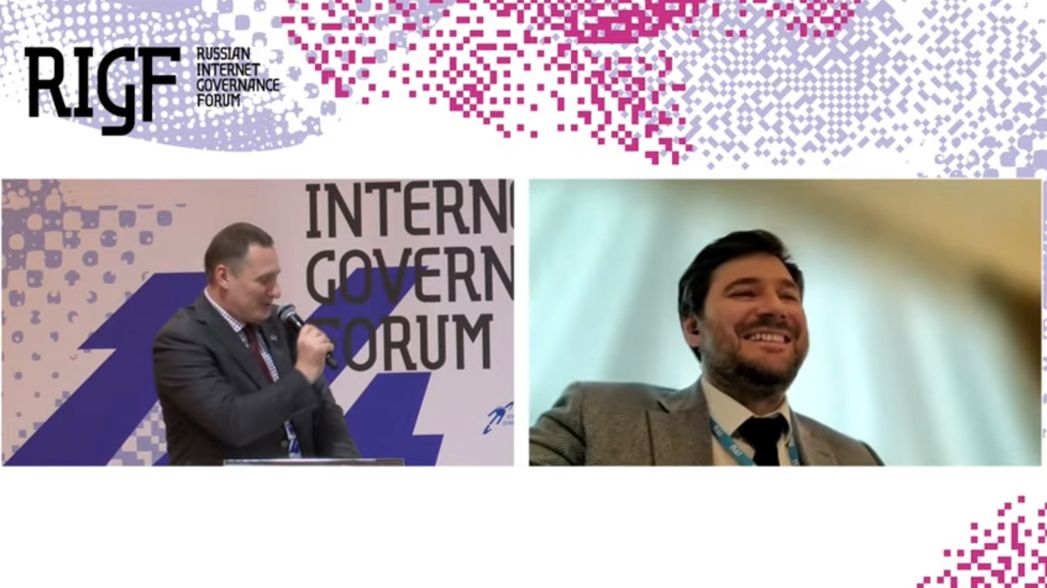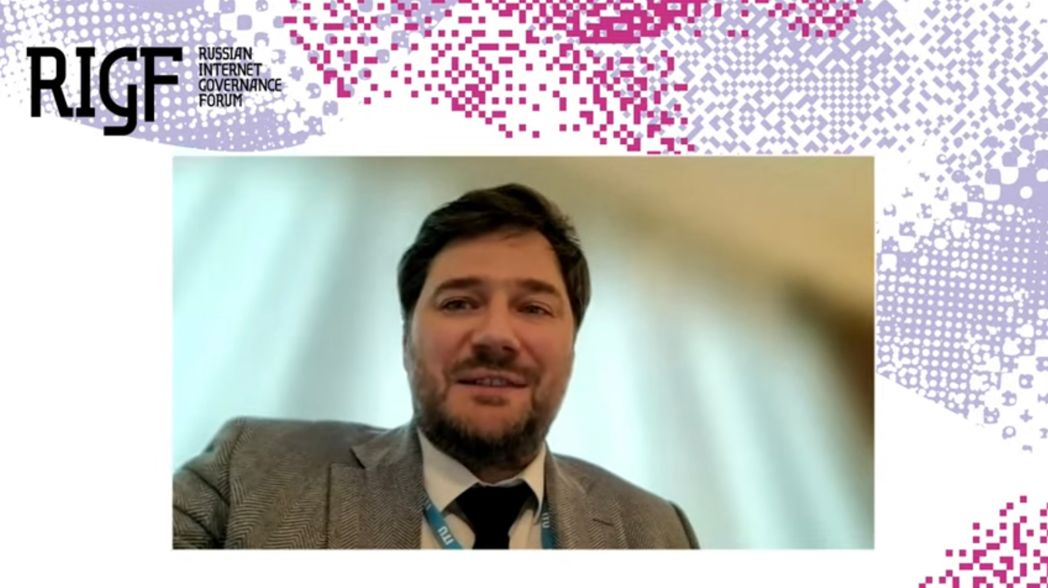
The fourteenth Russian Internet Governance Forum (RIGF) takes place on 9-10 April 2024 in a hybrid format in Moscow.
Speakers and participants of RIGF-2024 will discuss topical issues of Internet development and Internet governance, including preparations for the WSIS+20 meeting and the 30th anniversary of the .RU domain, which is celebrated on 7 April 2024.
Alexey Borodin, Director General of the Regional Commonwealth in the Field of Communications, addressed the Forum participants with welcoming remarks.
"Our Forum is taking place in the 30th anniversary year of registration of the ".RU" domain in Russia, and I would also like to point out one more important moment. In exactly one month - 7 May - we will celebrate "Radio Day" and for me these dates are very symbolic and inextricably linked. The Internet experienced its first wave of rapid development thanks to radio technologies - the spread of mobile communications. Even today and in the coming years we will become not only witnesses but also active participants of the second wave of Internet development due to mass introduction of radio technologies of low-orbit non-geostationary satellite systems" - noted A.S. Borodin.
The RCC Director General also noted that the mass introduction of radio technologies of NGSS systems, in addition to progress in technologies, services, availability and economic models, also brings a number of new challenges and threats, in particular:
- the number of such systems is extremely limited: today there are two, they are foreign, and have, in fact, the characteristics of an artificial monopoly;
- there are currently no adequate international regulatory approaches to their access to national communications markets and no government regulation, including on the quality of service provision;
- there are also issues regarding the security of such systems as they relate to both users and the states in whose territory such systems are deployed.
"If earlier the Internet was developed according to the rules of telecommunications (relevant requirements, licenses, etc.), now it simply, one could say, "falls" from the sky directly to the user, bypassing state institutions with their social, humanitarian, economic rules and norms" - said A.S. Borodin.
A.Borodin also touched upon the issues of Artificial Intelligence development as a powerful driver of Internet development. It was noted that in the public field more attention is paid to the use of AI in an entertaining way. However, it is much more important to address the substance of the changes taking place, centered on mathematics, cybernetics and, most importantly, national linguistic models - this is what will lay the foundations of digital sovereignty.
"For me, as a representative of a regional organization, the integrity and functioning of national segments, as elements of the common regional communications infrastructure of the countries in our region, is one of the most important tasks. "Runet today goes far beyond Russia's national borders, but it is also unique in that it is multilingual - the languages of all countries in our region form an important cultural field of our common space. I am confident that together, we will be able to preserve unity and ensure safe sovereign development" - said the Director General of the RCC.
The opening of the Forum was also attended by:
- Alexander Khinshtein, Chairman of the State Duma Committee of the Federal Assembly of the Russian Federation on Information Policy, Information Technologies and Communications,
- Tatiana Matveeva, Head of the Russian President's Department for the Development of Information and Communication Technologies and Communications Infrastructure,
- Chengetai Masango, Head of Office, UN Secretariat of the Internet Governance Forum,
- Alexander Shoitov, Deputy Minister of Digital Development, Communications and Mass Media of the Russian Federation,
- Vadim Glushchenko, ANO Centre of Competence for Global IT Cooperation.
The opening ceremony was moderated by Andrey Vorobyev, Director of the .RU/.RF Coordination Centre.
















